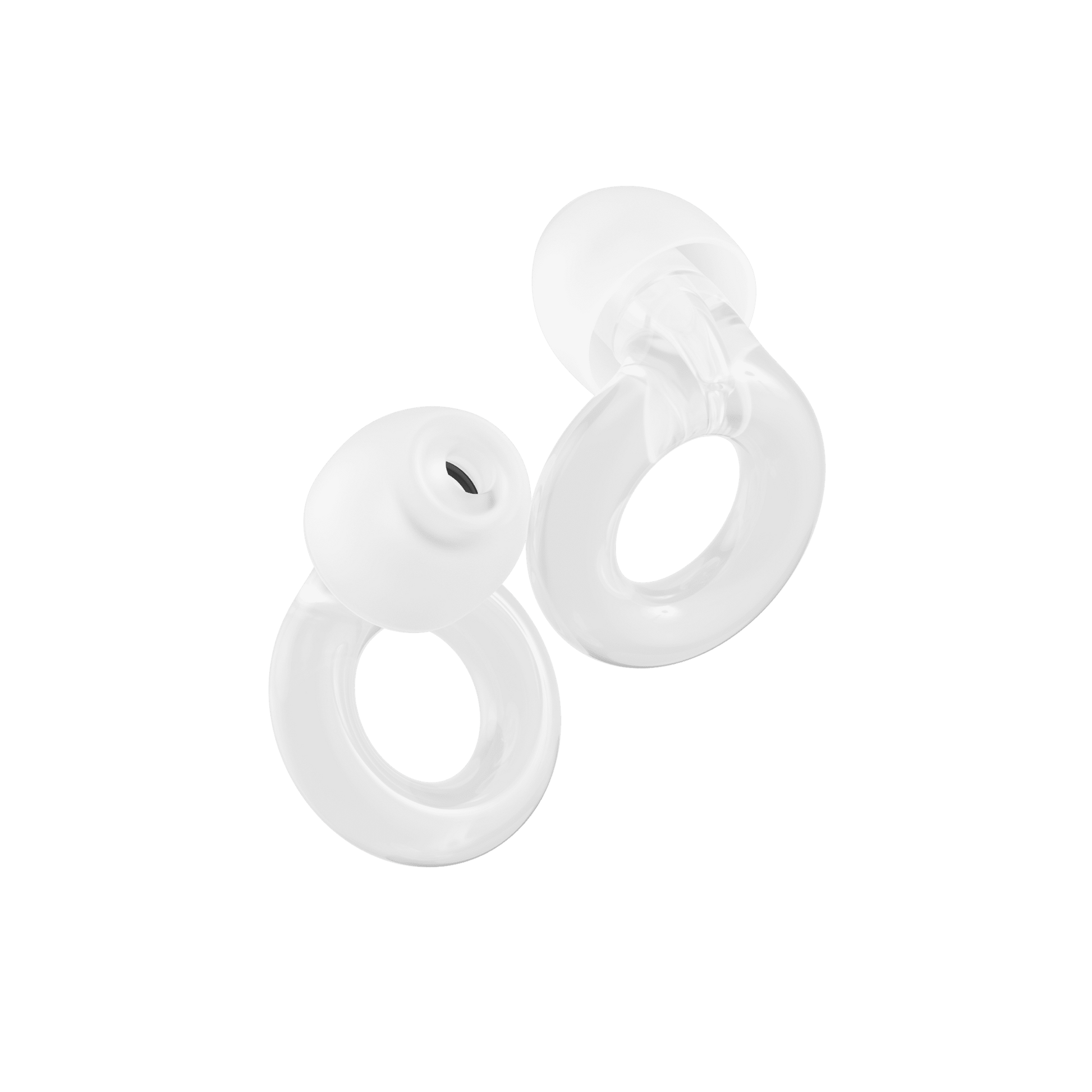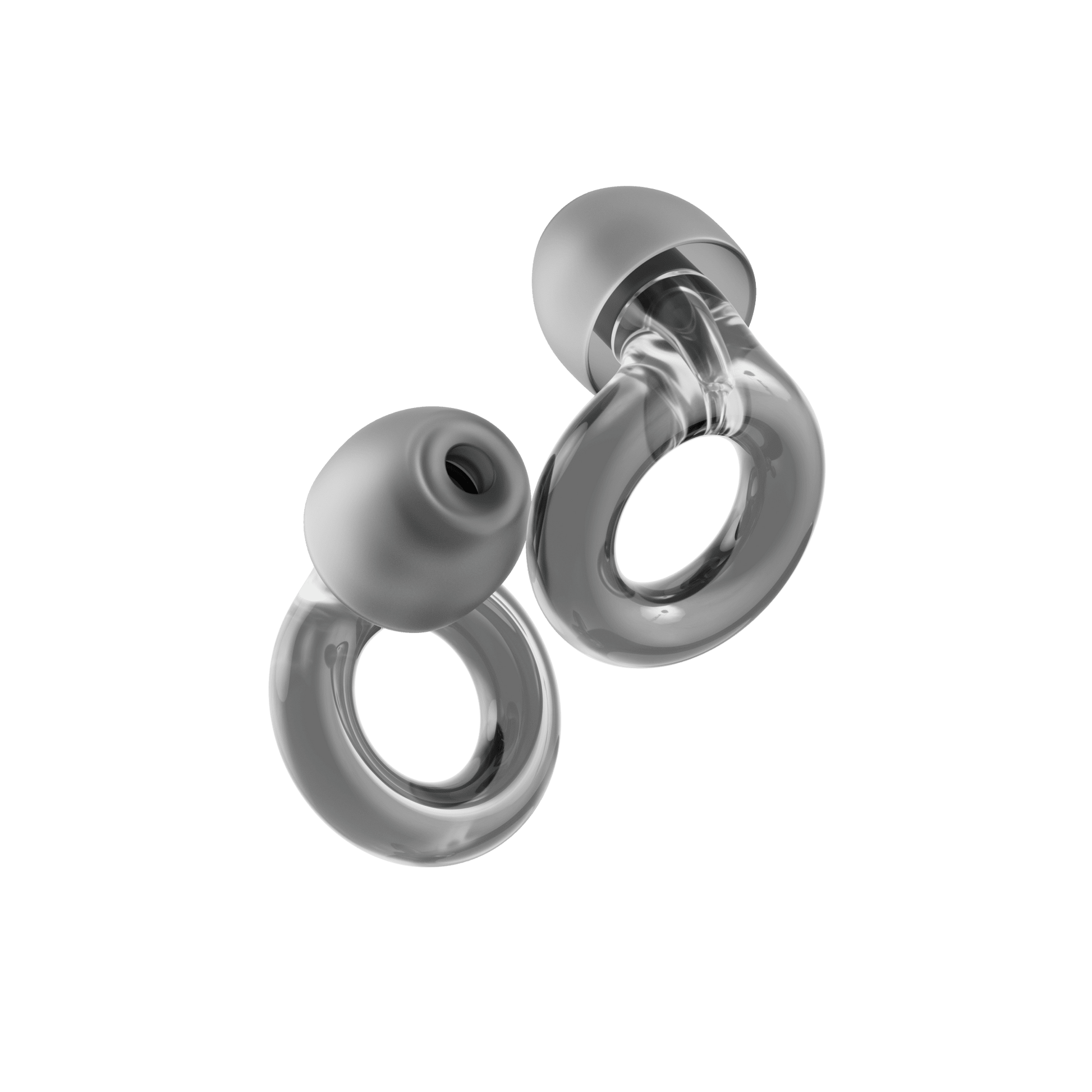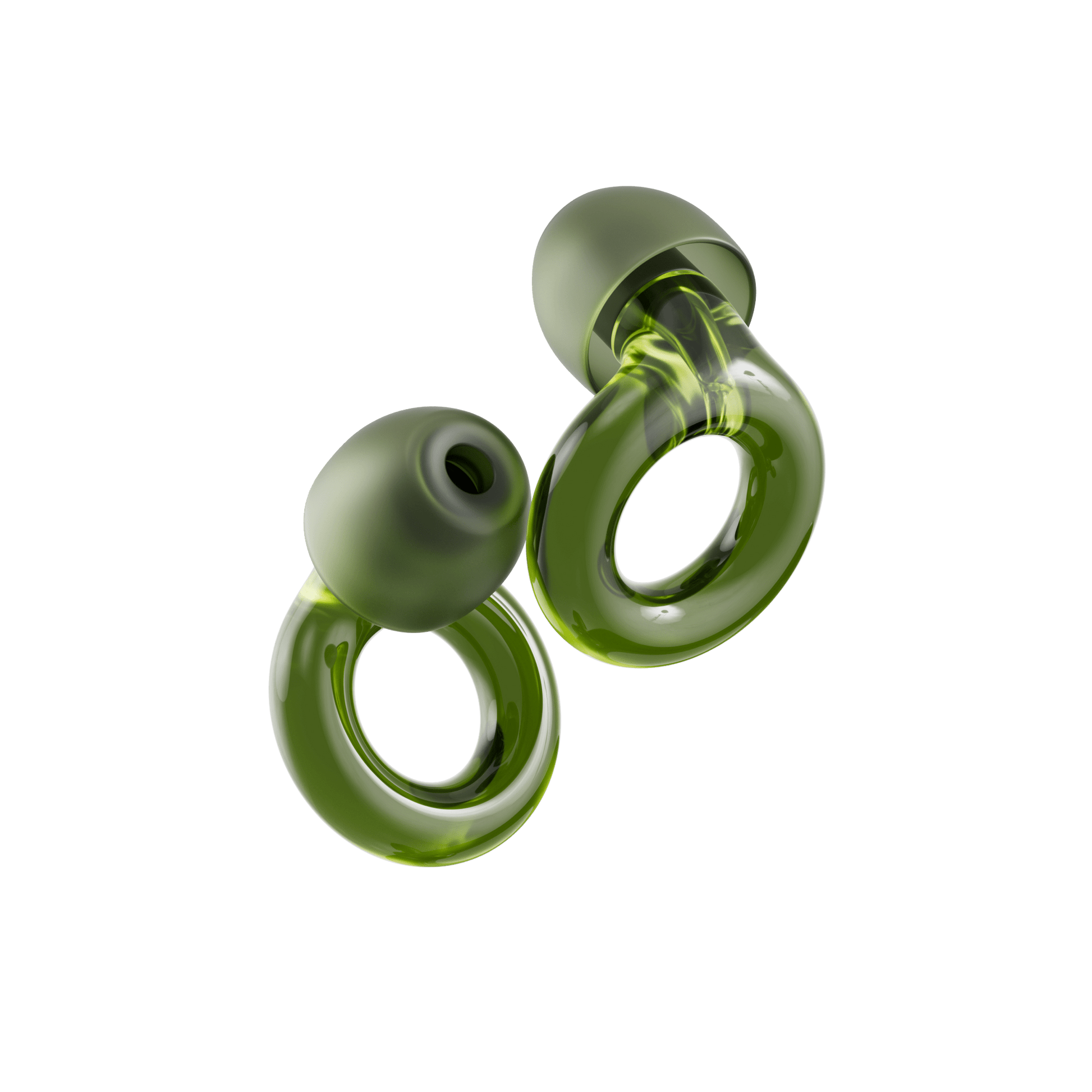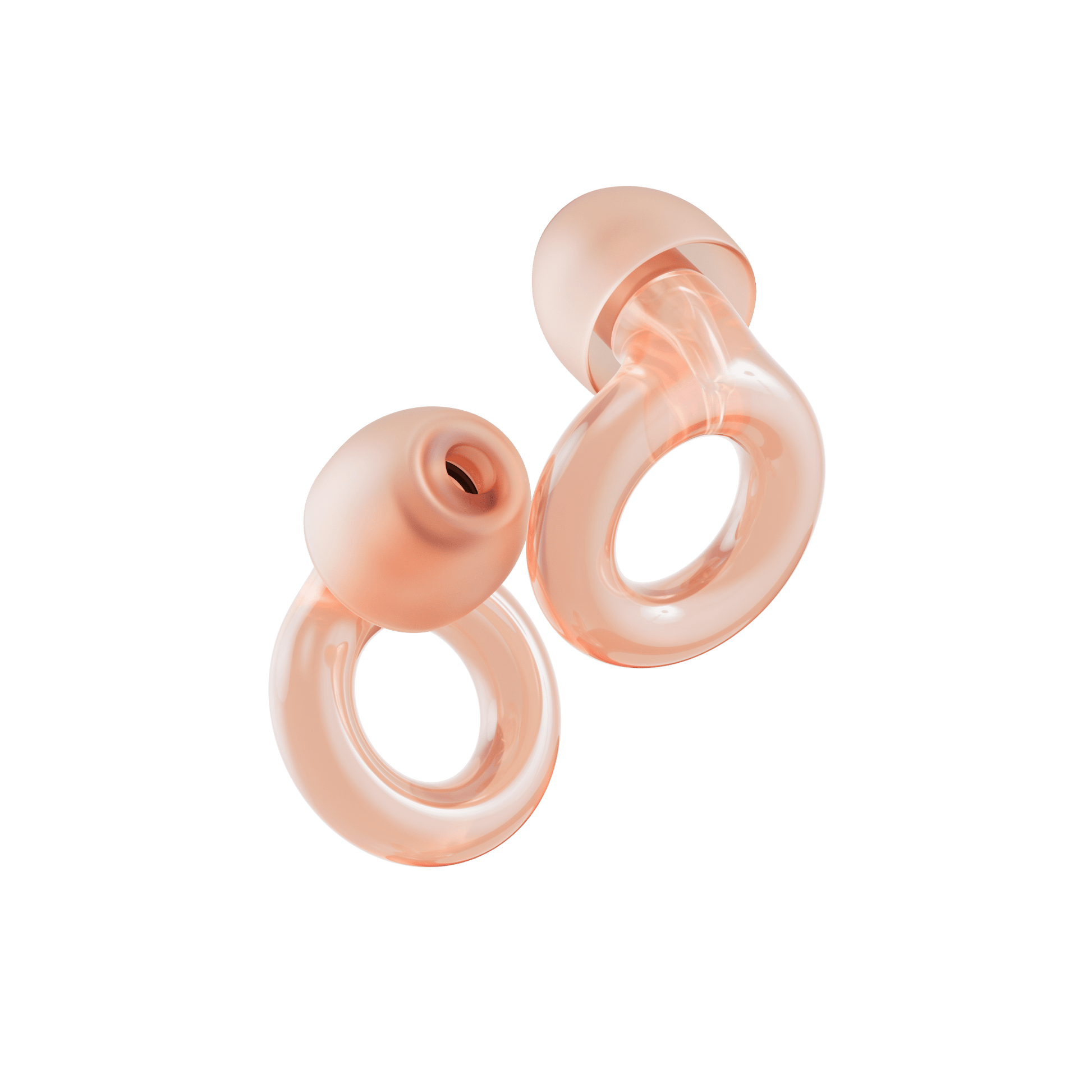Key takeaways
- Background noise affects us all differently – some people find it very distracting while it offers a productivity boost for others
- When there’s background noise, our brains struggle to know what to focus on, which can have a bigger impact on some people than others
- For those who prefer to work or study with background noise, instrumental music, ambient noise or white noise are the best options
- For those who need silence to work, solutions like quiet spaces in the office, noise canceling headphones and earplugs work best
Noise and concentration have a complicated relationship. We’ve all been there, it’s time to concentrate on important work but the environment is too loud. On the other hand, silence can be deafening too when the time comes to focus.

This is particularly difficult when it comes to the workplace. Some people thrive in a bustling environment, while others struggle to focus when there’s even the slightest hint of background noise.
So, let’s take a closer look at the link between background noise and concentration and how sound affects the brain. Whether you’re an employer looking to improve employee focus, or a frustrated student or worker wondering why it’s so hard to concentrate, here’s everything you need to know about the impact of noise on productivity.
Can background noise levels affect how well we concentrate?
For some people, noise distractions can be just that – mere distractions. For others, though, they’re completely unable to concentrate with background noise.
It’s clear that background noise can affect concentration – it’s just that it affects each person differently.
It all comes down to how our brains process sounds. The neural networks in our brains have certain processes they must follow to achieve focus and concentration. When there’s background noise, it competes with the brain signals for the things you actually want to focus on. For some people, the signals can get jumbled up, meaning it’s difficult to know what to concentrate on.
Studies have backed this theory up, including one by researchers Huang and Elhiali, which asked 81 participants to focus on a repeating sound, while also being exposed to background noises. They found that, when a loud noise happened in the background, the participants were more likely to lose their attention on the task at hand.
They then measured the brain activity of the participants. They found that brain waves synchronized with tones that the participants were focusing on – but once there was a noticeable background noise, the tone synchronization reduced and the brain waves aligned with the background noise.
That means that distracting background noises activate the same region of the brain as sounds that we choose to focus on – and that’s why background noise can be so distracting. Our brains just don’t know what signals are most important. It’s no wonder that it’s so hard to stay focused at work sometimes.
On the other hand, some people do find that working or studying with noise in the background can help them to be more productive. Some research has found that there is a certain optimal noise level that allows people to perform better – but too much noise impacts performance.
So, it’s all about finding that sweet spot between noise and silence, and finding out what noise helps you focus – or what noise helps your employees to focus, if you’re looking for ways to improve the work environment as an employer.
The potential impact of loud background noise on employees
Background noise may not be the number one reason for employees being stressed at work. But if they’re sensitive to noise, it can increase the amount of stress they feel. That may lead to more employee absence, and poorer performance and productivity, if team members don’t feel able to focus on their work.
Increased stress
Share information about your brand with your customers. Describe a product, make announcements, or welcome customers to your store.
Lack of productivity
Open plan offices can be a recipe for disaster when it comes to employee productivity. Research has found that, when exposed to a nearby conversation, employees can become up to 66% less productive!
Increased tiredness
If someone has to put more time and effort into focusing on a task because they’re constantly being distracted by background noise, it figures that they’ll feel more tired at the end of the working day. Over time, that can lead to a poorer work life balance.
Difference in performance between tasks
In 2021, a study was conducted, looking at background noise for studying and whether it helped or hindered performance depending on the type of task at hand. They found that there was no impact on ‘reading comprehension’ or ‘mental arithmetic’ tasks, but a significant decrease in performance on ‘logical reasoning’ tasks. That means that people may struggle to concentrate on certain types of tasks in a noisy office environment, but will be happily able to work on others without a dip in performance.
What noise is best for productivity?
We already know that some people do benefit from a bit of background noise, but not all sounds are created equal. What is the best noise for concentration?
Music
When it comes to putting our head down and grinding out work many of us have our own playlist dedicated to concentration. Many people find it easier to get in the zone with some background tunes.
It’s important to note that instrumental music tends to work best to improve concentration, as there are no lyrics. Lyrics tend to stimulate the areas of the brain used to concentrate, meaning they tend to distract the listener and could draw your attention away from the actual work.
There are two main music genres that seem to be particularly beneficial when it comes to helping concentration: ambient noise and instrumental music.
- Ambient noise for concentration
Ambient noise, also known as background noise, is a very popular sound for concentration as it mimics an environment that stimulates the listener to focus.
This can vary from natural sounds like rain and weather to more industrial noise like air conditioned workspaces. There’s an ambient noise for everyone!
- Instrumental Music
Various studies have shown that listening to classical music enhances brain activity, concentration and creativity. It should come as no surprise, then, that Mozart is the number one choice for surgeons working in operating rooms.

White noise
Ambient white noise may help some people to keep their focus, whether working or studying, as it drowns out other distracting background noises.
White noise is a blend of all the frequencies of sound that are audible to the human ear. That means it’s a mixture of all frequencies between 20 hertz and 20,000 hertz. They’re all played together at an equal intensity to create white noise, which is a sound that’s open compared to the buzz of TV static, the noise of a hairdryer, or a hum of an air conditioner.
A study at the University of Southern California looked at whether white noise helps concentration, by getting participants to listen to white noise at two different volumes while doing cognitive tests.
They found that white noise played at 65 decibels only improved performance in the working memory test, and it also increased stress. But when white noise was played at 45 decibels, it improved creativity and sustained attention.
That means that white noise, when played at a low level may help to increase focus for some people. But white noise isn’t the only color of noise – there’s also brown and pink noise, which are similar to white noise but at different frequencies. The only way to find out what color noise is best for studying or working is to try out a few and see which works, as everyone will respond differently.
What about people who can’t focus when they hear noise?
Of course, not everyone responds well to noise distractions. So what solutions are there for people who can’t focus with noise?
Install quiet spaces in the office
In a workplace, it’s important to create an environment where everyone can work the way that suits them best. That means offering quieter spaces like cubicles, meeting rooms and ‘silent zones’ where people can go to work if they don’t like background noise or if they need to work on a particular task. This should be balanced with more social areas where people who need background noise to focus can work from.
Offer noise canceling headphones
Noise canceling headphones block out background noise, letting people work in relative silence. They can be a good option when there’s no opportunity to work from quieter spaces.
Offer earplugs
Of course, there are some situations in which noise canceling headphones aren’t an option. Sometimes employees will need to engage with colleagues, or actively participate in meetings, but they find the tapping of keyboards and general office chatter distracting. That’s where earplugs to improve focus come in.
Earplugs like Loop Engage take the edge off while allowing the wearer to stay engaged. They don’t block out sound completely, but simply lower background noise to a more tolerable level, taking the edge off while allowing the wearer to stay engaged.
Plus, there’s one big advantage for businesses of offering earplugs over headphones – the cost! They’re cheaper and easier to use than noise canceling headphones, meaning you can support even more employees to create a work environment that suits their needs.
Loop Earplugs
Loop Engage 2
Make your office a greener place
Plants look great, and they help us to breathe cleaner air. But did you know that they can also absorb sound? Plants with thick, fleshy leaves are the best at absorbing sound. You may want to create a plant wall to get the maximum impact of their sound absorbing qualities.
Offer flexible working
When you work from home, it’s easier to control the levels of background noise. There are no colleagues on the phone, and you’re in charge of when you turn the noisy coffee machine on. If staff members find that they’re more productive when they work away from the office, consider creating a flexible working policy. That means people can choose when they work from home and when they come into the office, creating a working pattern that suits their needs.
Create an environment that works for your people
Some people thrive on background noise, while for others, it leads to reduced productivity and an inability to focus. That makes it difficult as an employer to create an environment that works for everyone. But you can offer the best of both worlds, by creating a workplace that suits every working style, and offering adjustments like working from home and earplugs for focus. We’re sure you’ll soon have healthier, happier employees who are better able to concentrate – whether they like background noise or not!

How To Improve Work Life Balance For Employees
Discover effective strategies to improve work-life balance for your employees. Prioritize wellness and boost producti...

How To Stay Focused At Work and Improve Concentration
Having trouble concentrating whilst in a bustling office? Discover our top tips for staying focused at work so you ca...

Practical Work Life Balance Tips for a Healthier and Happier You
Achieving work life balance is crucial for your health and happiness. Check out our work life balance tips for a bett...


















